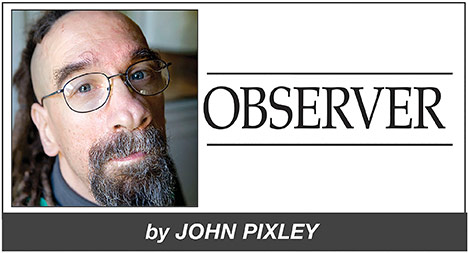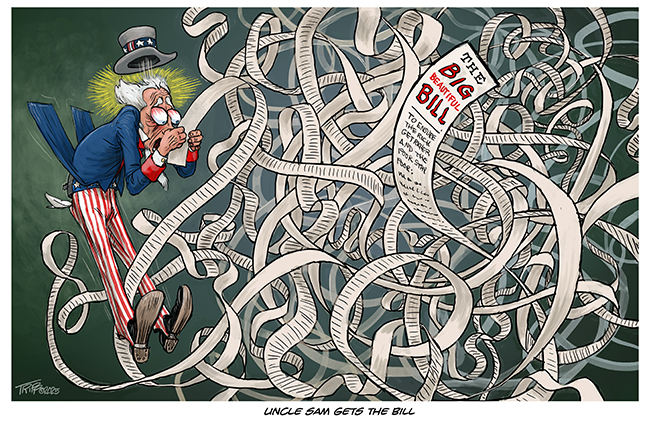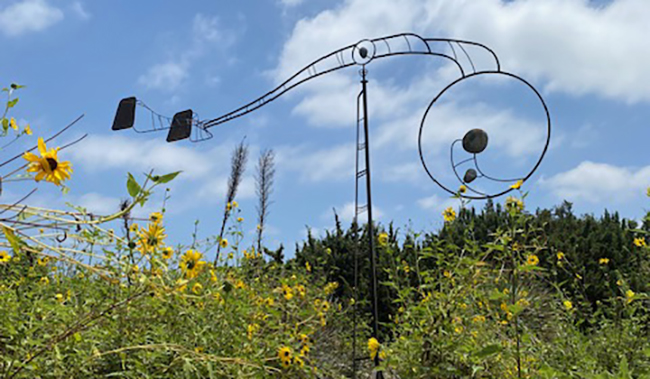Council approves sanitation rate increase, lease agreement for Depot
by Kathryn Dunn | editor@claremont-courier.com
A sanitation rate increase and extension of the lease agreement for the Claremont Museum of Art were among items moved forward by the council Tuesday night. Finance director Adam Pirrie also gave a somewhat somber report on projected general fund losses due to Covid-19.
Claremont resident Jim Belna advocated for the city and council to consider contracting more cost effective sanitation services; one that would eliminate costly CalPERS benefits.
Since the private sector is “bleeding jobs,” Claremonter Matt Magilke argued the timing of a sanitation increase was inappropriate, and asked the city to show whether staff had been furloughed or if pay had been reduced in an effort to avoid passing rate increases on to residents who are already under financial hardship.
City manager Tara Schultz said the city has not furloughed staff or reduced employee pay, but they have reduced hours for some part-time employees.
“As a small organization, we have essential services we are required to provide,” she said. “We are providing that with the current staff.”
Since the item was agendized as an “informational report,” the city attorney said there was no option for the council at Tuesday’s meeting to make changes as the rate increase schedule had been previously approved.
“It’s not teed up for you tonight to adjust that fee,” she said.
Director of Community Services Jeremy Swan said the city used the March-to-March CPI to come up with the 1.9 percent increase to sanitation fees. He said the city will lose about 35 percent of its fee collection from recycling next year and will also have to pay for a mandatory food and organics recycling program in the coming year, which will generate new costs.
Councilmember Corey Calaycay, who pulled the item from the consent calendar to address concerns, said sanitation rate increases are being felt across the county and state. Both municipal and private collection rates are increasing for several factors—minimum wage increases, landfill rate increases and mandatory programs, like the organics recycling program the city will have to undertake this year.
“San Dimas raised their trash rates 3.4 percent, and they contract out. Even as a contract provider, the reason cited by Waste Management was the increased cost of landfill facility and cost of living increases,” Mr. Calaycay said.
Going to the private sector won’t result in rate stabilization, he said. Mr. Calaycay thanked the city’s sanitation department, then reminded residents sanitation was one of the first bargaining groups to step up and agree to pay a full 8 percent employee contribution to CalPERS in 2010, about three years before any other group.
“They were willing from the get-go to pay their share,” he said. “They have done their best and worked very hard to keep city costs down.”
The sanitation rate increase of 1.9 percent was approved and will begin July 1.
Depot museum lease extended 15 years
Item 5 on the consent calendar, which was also pulled for discussion by Mr. Calaycay, was to extend the rental lease of the Claremont Depot to the Claremont Museum of Art to 2035.
Two commenters argued that using the Depot as a museum goes against the idea of it as a transit center. Further, with no public restroom and having to pay a fee to get in, it is no longer considered a “public building.”
Resident Erik Griswold asked if there were a way for the restrooms to be open for public use, without visitors having to pay the fee to enter the museum.
Mr. Calaycay addressed the issue.
“These folks [museum staff] have to maintain the restrooms,” he said. “When you say ‘public restrooms’ it’s everybody. Someone lit our city hall bathrooms on fire twice. It’s not fair to subject them to those situations. A business owner allowed a homeless person to use her restroom and she had defecated all over the restroom and she had to clean that up herself.”
He agreed that situation is not ideal, and appreciates Mr. Griswold’s concern, but asked that everybody try to think about these things in a reasonable context.
Ms. Schultz said Mr. Magilke’s objection over use of transportation funds for the Depot retrofit was again brought to Metro, who reviewed it. “Metro has reaffirmed its commitment to the project. Metro is good with what we are doing,” she said.
Councilmember Ed Reece argued that despite public comment, the Depot is currently being used for transportation purposes, and asked the city manager if there was “transit equipment” currently housed in the Depot.
“The electrical for the platform is inside that building,” Ms. Schultz said.
Mayor Pro Tem Jennifer Stark added that having a place to look at art together creates more of a destination to our town and does fall under transportation.
“The more beautiful and useful and dynamic our Depot is the better it is for everybody,” Ms. Stark said.
She also emphasized that the city council didn’t decide what to do with the funds, Metro cleared it.
The addendum to lease agreement—which includes approval for improvements like construction of a portico for use as a community room—was extended until June 30, 2035 for a payment of $1 per year by the CMA to the city.
City losses from the coronavirus
The city council also heard a report about impacts on the local economy due to Covid-19.
The city manager said possible general fund revenue losses presented by the city’s finance director Adam Pirrie are only a best guess at this point.
“It’s really too soon to tell what the impacts are going to be, but it’s obvious there are going to be fiscal impacts,” she said.
The city expects a $1.2 million in revenue losses as a direct result of Covid-19 and safer at home orders, Mr. Pirrie said.
Based on current projections, Mr. Pirrie said the city anticipates a $358,000 loss of general sales tax revenue.
Also, hotels are operating nowhere near capacity, he said. For April, May and June, the city believes hotels are working at about 10 percent capacity for a loss of $350,000.
Further, the city expects a $300,000 loss from city events and other programming through human services, Mr. Pirrie said.
A more complete report on the long-term financial challenges resulting from Covid-19 will be published next week online and in next Friday’s edition.










0 Comments